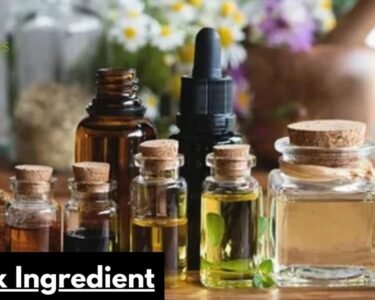Dark spots, also called hyperpigmentation, are areas of skin that look darker. They can come out on the face due to sun exposure, acne marks, hormonal changes, or ageing. These spots appear when the skin produces excess pigment, the substance responsible for skin color. While dark spots are not usually toxic, they can affect your confidence and make your skin look rough. Many people choose natural methods, such as remedies from Wellhealthorganic.com : Remove Dark Spots on Face Tang – lemon juice, to fade these marks gently and safely while keeping the skin healthy and glowing.
What are the Common Causes of Dark Spots?
Dark spots or hyperpigmentation occur when your skin produces too much melanin (the pigment that gives your skin its colour). Understanding the root causes helps you both prevent and treat them effectively.
1. Sun Exposure
First and foremost, sun exposure drives hyperpigmentation. UV rays trigger melanocytes to pump out extra melanin, which accumulates as sun spots or age spots—especially in areas like the face, hands, shoulders, and arms. Moreover, UVA and UVB-induced photoaging harm the skin and intensify discolouration.
2. Skin Inflammation or Injury
Next, injuries such as acne, cuts, burns, or eczema often lead to post-inflammatory hyperpigmentation (PIH). As skin heals, it sometimes leaves behind darker patches.
3. Hormonal Changes (Melasma)
Meanwhile, hormonal shifts like those from pregnancy or birth control can cause melasma, also known as the “mask of pregnancy.” These patches often appear on the cheeks, forehead, and upper lip.
4. Genetics & Medical Conditions
Additionally, genetics play a role—some people are simply more prone to pigmentation issues. Plus, certain health conditions—such as Addison’s disease, hemochromatosis, thyroid disorders, or diabetes—can also trigger hyperpigmentation.
5. Medications & Chemical Exposure
Furthermore, some medications (like antibiotics or drugs that make skin light-sensitive), as well as exposure to heavy metals, may cause dark spots.
How Does Lemon Juice Work to Remove Dark Spots?
Due to its high vitamin C and citric acid levels, lemon juice can help fade dark spots, acting as a natural exfoliant and lightening agent. For instance, the citric acid gently dissolves dead skin cells, while vitamin C helps reduce pigmentation and supports collagen production.
- Rich in vitamin C – Known for its antioxidant and brightening properties, vitamin C can help inhibit melanin production and support a more even skin tone.
- Contains citric acid (an AHA) – These natural acids gently exfoliate, helping to slough off pigmented surface cells and encourage skin renewal.
- Antioxidant Shield
Vitamin C combats free radicals, unstable molecules caused by UV rays and pollution that aggravate pigmentation. By lowering oxidative stress, it helps stop the development of new dark spots.
How to Apply Lemon Juice and Tang for Dark Spot Removal
Step-by-Step Guide
- Patch Test First
Always test on your inner forearm and wait 24 hours to check for irritation or redness - Mix the Paste
In a small bowl, combine:
- 1 tablespoon Tang powder
- 1 tablespoon fresh lemon juice
Stir to form a smooth paste. If it’s too runny, add a pinch more powder
3. Apply Gently
Use a clean finger or cotton swab to dab the mixture on dark spots. Avoid rubbing aggressively. Let it sit for 5–10 minutes.
4. Rinse and Soothe
Wash off with lukewarm water and pat dry. Follow up with a moisturizer to counteract dryness. Lemon can be drying, so hydration is key
5. Protect Your Skin
Lemon increases sun sensitivity. Always apply a broad-spectrum sunscreen (at least SPF 30) for a few days after use—especially if you’re outdoors.
6. Repeat Wisely
If your skin tolerates it, apply this treatment 1–2 times per week. Don’t overuse—citric acid can irritate if used daily.
Benefits of Combining Lemon Juice with Tang
Beginning with a lively splash of citrus zest, combining fresh lemon juice with Tang results in a tasty, nutrient-rich drink.
1. Double Dose of Vitamin C + Antioxidants
lemon juice delivers a hefty load of vitamin C and antioxidants, which support immune health, promote glowing skin, and combat oxidative stress. Meanwhile, Tang is fortified with vitamins like A, B, and C, along with essential minerals such as calcium and magnesium. Therefore, together they offer an enhanced antioxidant and nutritional boost, especially helpful when you need a quick pick-me-up.
2. Better Hydration with a Taste Twist
Moreover, combining pure lemon juice with Tang’s flavored sweetness encourages more water intake simply because it tastes great. Tang also provides carbohydrates, which can offer a mild energy lift—making it practical for mornings or pre-workout hydration.
3. Digestive Support & Refreshing Citric Punch
In addition, lemon’s citric acid supports digestion by helping the stomach empty more efficiently. Plus, Tang brings a nostalgic citrus kick that makes sipping on hydration more refreshing and enjoyable.
4. Gentle on Calories, Strong on Flavour
Notably, Tang is relatively low in calories when prepared as recommended; combined with lemon’s natural flavour, you get a flavorful drink without overloading on sugar or heavy calories. Importantly, you can adjust the sweetness by using less Tang or adding more lemon.
Sample “Quick Recipe” Section
Quick Citrus Refresher
- “Squeeze ½ fresh lemon into 8 oz (250 ml) of cold or lukewarm water.”
- “Stir in 1 teaspoon (or to taste) of Tang powder.”
- “Optionally, add ice cubes, mint leaves, or a splash of sparkling water for extra zest.”
- “Sip slowly use a straw and rinse your mouth afterward to protect your teeth.”
| Benefit | Source of Advantage |
| Antioxidants & Vitamins | Lemon + Fortified Tang |
| Hydrating & Energy-boosting | Tang’s carbs + Lemon’s citric kick |
| Aids Digestion & Refreshment | Citric acid + Tang’s flavor appeal |
| Low-Calorie Flavor Enhancement | Tang + Lemon = taste, minimal calories |
Risk Factors of Dark Spots and Major Skin Issues
1. Sun Exposure and UV Damage
The biggest culprit is the sun. Ultraviolet (UV) rays trigger excess melanin production, which leads to dark spots, freckles, and premature aging. Extended exposure without protection increases the likelihood of sunburn, uneven skin tone, and skin cancer. Artificial tanning devices carry the same risks.
2. Hormonal Changes
Fluctuations in hormones such as during pregnancy, menopause, or with birth control, can cause melasma, which appears as symmetrical brown patches. These same changes can also make the skin more sensitive, increasing the risk of redness, breakouts, and hyperpigmentation.
3. Skin Injury and Inflammation
After acne, eczema flare-ups, or cuts, the skin may heal with post-inflammatory hyperpigmentation (PIH). This may also cause scarring, redness, or an irregular texture. Individuals with medium to deep skin tones tend to experience longer-lasting marks.
4. Genetics and Skin Type
Your skin type and family history play a role in how your skin reacts to triggers. Oily skin is more acne-prone, dry skin may develop irritation and eczema, and sensitive skin can react to skincare ingredients, perfumes, or fabrics.
5. Medications and Health Conditions
Certain drugs, including anti-inflammatories, antibiotics, chemotherapy agents, and antimalarials, can increase photosensitivity or pigmentation. Conditions like diabetes, thyroid imbalances, and autoimmune disorders may also cause pigmentation changes or rashes.
6. Aging and Photoaging
With age, the body produces less collagen, causing the skin to become thinner, drier, and more prone to damage. You may see age spots, fine lines, sagging, or uneven tone. This often becomes more severe after years of exposure to the sun without protection.
7. Rare Genetic Disorders
Lastly, rare genetic disorders like xeroderma pigmentosum drastically increase risk, as affected individuals lose DNA repair capacity and develop severe pigmentation or cancer after minimal sun exposure.
Common Major Skin Issues to Watch For
Here are some of the most common skin problems linked to these risk factors:
- Hyperpigmentation – dark patches caused by excess melanin.
- Acne – clogged pores leading to blackheads, whiteheads, and pimples.
- Eczema (Atopic Dermatitis) – itchy, inflamed, and dry skin.
- Rosacea – redness, flushing, and visible blood vessels, often on the face.
- Psoriasis – thick, scaly patches caused by overactive skin cell growth.
- Actinic Keratosis – rough, scaly spots from sun damage, sometimes precancerous.
- Skin Cancer (Melanoma, Basal Cell, Squamous Cell) – abnormal growths often linked to UV exposure.
Prevention Tips for Healthy, Even-Toned Skin
- Use SPF 30+ daily — face, neck, and hands included.
- Moisturize regularly to maintain a strong skin barrier.
- Treat inflammation early to prevent scarring or pigmentation.
- Follow a balanced diet packed with antioxidants, including fruits, vegetables, and nuts.
- Stay hydrated to keep skin supple and resilient.
- Get regular skin checks — especially if you notice new or changing spots.
Wellhealthorganic.com : Remove Dark Spots on Face Tang – Lemon Juice: Useful Home Remedies
Key Home Remedies
- Lemon Juice
Owing to its rich citric acid content, regularly drinking lemon water naturally helps lighten dark spots. Despite its benefits, it’s acidic—so always dilute, do a patch test, and wear sunscreen afterwards to avoid increased sun sensitivity. - Turmeric
Turmeric works wonders. It has antiseptic properties, works to enhance your skin tone, and minimises dark spots. Use sparingly, as excessive application may temporarily discolor your skin. - Aloe Vera
Aloe vera soothes and lightens pigmentation thanks to its nourishing compounds. Yet, since some people are sensitive, patch-testing is a must. - Curd (Yogurt)
Curd is rich in lactic acid, which mildly exfoliates and softens the skin, helping to reveal a brighter and more uniform complexion. - Honey Mask
Honey deeply hydrates and restores your skin’s healthy glow while helping fade dark spots over time. - Aloe Vera, Castor Oil, Papaya & Honey
According to VeryWell Health, you can fade age spots using things like aloe, honey, yogurt, apple cider vinegar, papaya, and potato. Each ingredient supports skin-brightening with different mechanisms—from gentle exfoliation to homemade antioxidants. - Jamun (Indian Black Plum)
Jamun, rich in vitamin C and antioxidants, as a potent natural option. A face pack made from jamun seeds, mixed with milk or rose water, can brighten the complexion, reduce blemishes, and calm inflammation. - Lemon, Honey, Aloe, Turmeric & Potato Juice
Another recent roundup emphasises these everyday kitchen staples. Each one helps lighten dark marks while nurturing your skin, though results take time and consistent use.
Conclusion
In conclusion, natural ingredients like turmeric, aloe vera, curd, honey, and lemon juice offer proven, budget-friendly solutions for fading dark spots. Using the method described at wellhealthorganic.com : remove dark spots on face tang – lemon juice, adds a mild exfoliating boost. Ultimately, consistent application, gentle care, and patch testing ensure safe and effective skin brightening—helping you gradually achieve a clearer, more radiant complexion.
Disclaimer:
This article discusses natural remedies for treating dark spots on the skin. The remedies are widely used, but they may also involve some risks. Acidic ingredients, such as lemon juice, can harm your skin if they are not used properly. The remedies discussed or information provided in this content are only for general informational purposes and are not a substitute for any medical advice, diagnosis, or treatment. Always consult a dermatologist or healthcare professional before applying any new ingredient to your skin.
Wellhealthorganic.com : Remove Dark Spots on Face Tang – Get Ready for a Radiant Glow



